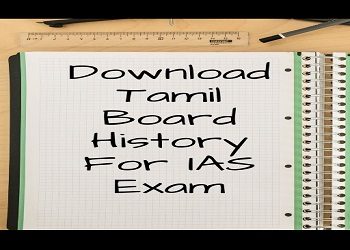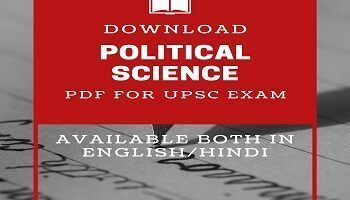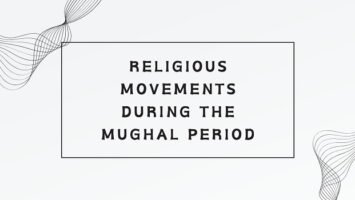Table of Contents
Download Tamil Board History For IAS Exam:
Class 11th History Volume I:
- Chapter 1: From the Beginnings to the Indus Civilisation.
- Chapter 2: The Chalcolithic, Megalithic, Iron Age and Vedic Cultures.
- Chapter 3: Rise of Territorial Kingdoms and New Religious Sects.
- Chapter 4: Emergence of State and Empire.
- Chapter 5: Evolution of Society in South India.
- Chapter 6: Polity and Society in Post-Mauryan period.
- Chapter 7: The Guptas.
- Chapter 8: Harsha and Rise of Regional Kingdoms.
- Chapter 9: Cultural Development in South India.
- Chapter 10: Advent of Arabs and Turks.
- Chapter 11: Later Cholas and Pandyas.
Class 11th History Volume II:
- Chapter 12: Bahmani and Vijayanagar Kingdoms.
- Chapter 13: Cultural Syncretism: Bhakti Movement in India.
- Chapter 14: The Mughal Empire.
- Chapter 15: The Marathas.
- Chapter 16: The Coming of the Europeans.
- Chapter 17: Effects of British Rule.
- Chapter 18: Early Resistance to British Rule.
- Chapter 19: Towards Modernity.
Class 12th History Volume I:
- Chapter 1: Rise of Nationalism in India.
- Chapter 2: Rise of Extremism and Swadeshi Movement.
- Chapter 3: Impact of World War I on Indian Freedom Movement.
- Chapter 4: Advent of Gandhi and Mass Mobilisation.
- Chapter 5: Period of Radicalism in Anti-imperialist Struggles.
- Chapter 6: Religion in Nationalist Politics.
- Chapter 7: Last Phase of Indian National Movement.
- Chapter 8: Reconstruction of Post-colonial India.
Class 12th History Volume II:
- Chapter 09: Envisioning a New Socio-Economic Order.
- Chapter 10: Modern World: The Age of Reason.
- Chapter 11: The Age of Revolutions.
- Chapter 12: Europe in Turmoil.
- Chapter 13: Imperialism and its Onslaught.
- Chapter 14: Outbreak of World War II and its Impact in Colonies.
- Chapter 15: The World after World War II.









Comments (No)